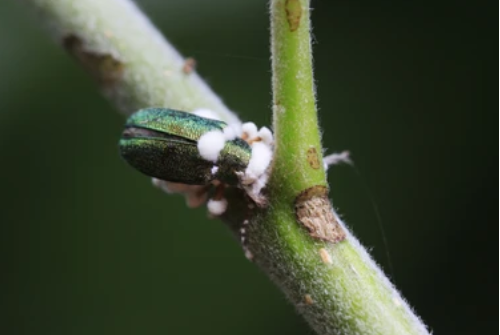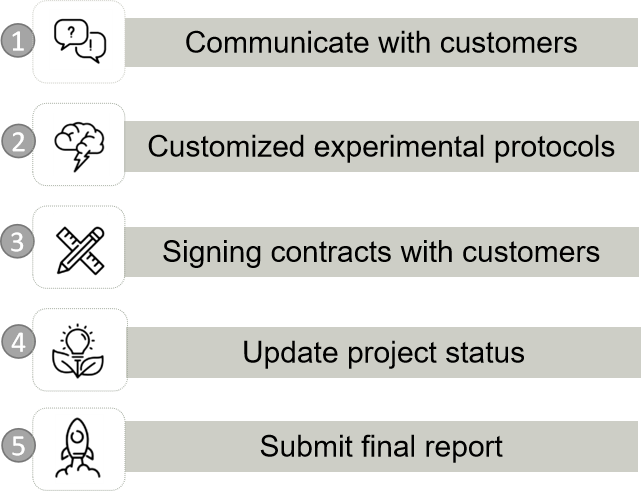Beauveria is an entomopathogenic fungus that can multiply in various insects and produce leucovorin, oxytetracycline and calcium oxalate crystals simultaneously. This causes insect poisoning and disrupting insect metabolism to death. At present, Beauveria insecticide has strong pathogenicity, wide infestation range, adaptability, and no environmental pollution, etc. As a broad-spectrum microbial insecticide, it has been widely used in agriculture and forestry pest control.
Lifeasible is committed to biological control research and aims to provide solutions for green pesticide development. We focus on Beauveria insecticide development research, aiming to further improve the insecticidal properties of Beauveria. This is so that Beauveria can maximize protection against pests in the market.

Since Beauveria is genetically diverse and varies greatly in virulence, selecting and breeding superior strains with high spore production, high virulence, and rapid efficacy are particularly critical for the biological control of pests and diseases. We select and breed highly pathogenic Beauveria strains mainly through natural screening, artificial mutagenesis breeding, and genetic engineering.
Beauveria insecticide is non-toxic to humans and animals, safe for crops, has no residue, no environmental pollution, and continuous infection to pests, and pests once infected can be spread by continuous infiltration.

Lifeasible is dedicated to the development and application of insecticides. The biological insecticides we have developed have achieved good results in pest control. If you are interested in us, please feel free to contact us.
Lifeasible has established a one-stop service platform for plants. In addition to obtaining customized solutions for plant genetic engineering, customers can also conduct follow-up analysis and research on plants through our analysis platform. The analytical services we provide include but are not limited to the following:
Get Latest Lifeasible News and Updates Directly to Your Inbox
Adaptive Evolutionary Mechanism of Plants
February 28, 2025
Unraveling Cotton Development: Insights from Multi-Omics Studies
February 27, 2025